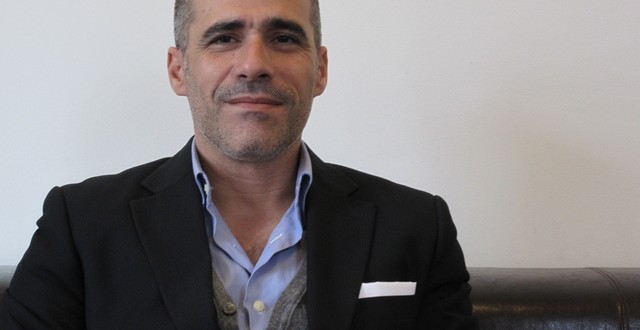The developments and events thus far known about the collapse of BES and the Espírito Santo group, across various ramifications, are anything but reassuring. The entire range of situations that are coming into the public domain make it ever more pertinent to discover initiatives that take a different approach to banking activities and also in Portugal. To this end, ECO123 interviewed Tito Damião, Executive Director of ACAF – the Association of Self Financed Communities, which has engaged in a range of initiatives designed to foster the conditions for the emergence of Ethical Banking in Portugal.
ECO123: Before we get into the theme, could you please tell us about ACAF?
ACAF has existed since 2009 and is a non-profit organisation with a social goal within the framework of micro-finance and the sharing economy, fostering and empowering peoples and communities with methods that boost their levels of trust, autonomy and sustainability. Initially designed as a 100% non profit organisation, the tremendous current difficulties in financing organisations with non-welfare social missions and, furthermore, the potential for innovation and the self-sustainability of some facets to ACAF activities, led to the recruitment of the new Executive Director and a management team in October 2013 as well as a process of transforming ACAF through projects generating returns enabling the financing of its social mission. This process is only in its beginnings and ACAF is today one of the many social entrepreneurship organisations with methodologies for rendering citizens and communities autonomous, with capacities to attain self-sustainability but that require investment to be able to survive and grow. The social entrepreneurship ecosystem in Portugal remains small and we still lack the forms of financing that reflect the diversity of the organisational models and the phases that they go through.
What needs currently exist that mean ethical banking is more important now than in the past?
I would say that the needs are equity, predictability, greater personalisation, greater self-regulation and greater defence of the public interest.
Equity as the system as it currently functions has not provided any evidence of supplying the same service standards to all private clients and even to client companies and organisations.
Predictability (which includes total transparency) as we cannot approach this activity from any other perspective apart from the long term and the current free market system, with a regulatory deficiency, proves inefficient and harmful to the economy itself.
Personalisation and self-regulation because in contemporary society there is little sense in delegating certain regulatory responsibilities to third parties when the desire to participate as well as the will to advance with the co-creation of solutions with consumers are both on the rise with technology enabling the implementation of low cost collaborative structures.
These needs lead us onto two issues that highlight the historical importance of the advent of ethical banking as a means of guaranteeing the public interest in this sector of activity:
The first involves ensuring the interests of bank clients are always ranked above those of others whether of shareholders or of other interested parties and these interests take on individual relevance irrespective of regulation or other public policies greater than that currently experienced. For example, the commercial pressures and easy access to credit that we have had during years for the acquisition of real estate and very commonly of assets overly exposed to speculation. This couples with the still prevailing lack of negotiating capacities or consumer competences in financial literacy skills and collectively amounting to structural problem s generating the enormous social problem of bad debt and over-indebtedness that culminated in the world economy getting stricken down by the crisis originating in the United States with the 2008 sub-prime loan crisis. If this specific crisis was not totally pre-empted, the conditions for its occurrence had been widely identified and discussed by many economists, NGOs and politicians and therefore could correspondingly have been avoided had there been effective reform of the sector’s regulation with responsibilities falling in particular on national governments such as the United States, transnational authorities such as the European Union and multilateral platforms such as the World Trade Organisation.
The second dimension involves the interests of citizens/taxpayers constituting the supreme public interest of this sector and with the legal framework and banking system regulation serving this interest from a preventive and not from a palliative perspective. For example, it should be impossible for behaviours of a penal character to only get revealed at a phase when the consequences are already irreversible and devastating to the wider economy and to social peace. Such consequences, as we have observed since the 2008 crisis and subsequent recession, continue to be paid, whether totally or partially, by citizens/taxpayers and never to any appropriate extent by the actual authors of the crime with the possible exception of Iceland that referred all responsibilities underlying its financial crisis in 2008 to its penal justice system and not to the state or its taxpayers.
What entities do you know are working to implement ethical banking in Portugal and what is the ACAF role?
Recently, a set of entities, already around 30 in number, embarked on a process of cooperation on the initiative of APDES – the Piaget Agency for Development1 around the themes of micro-finance and the sharing economy. This will take its first step in an event due to be publicised shortly, in which ethical banking will be a key theme and especially in terms of the analysis of international examples as is the case with the ethical bank FIARE in Spain. The event will also take into account other approaches to microfinance and the sharing economy , such as the online peer to peer platform for group savings and investment, the American PUDDLE.COM2, led by Jean Claude Ferrera, the founder of ACAF Spain and the founder of the CAF methodology among other approaches such as alternative local currencies. Other event objectives include: the harmonisation of concepts and the identification of similar methodologies undergoing implementation in Portugal in these domains; openly discussing these questions and calling on other organisations to join the network so as to nurture economies of scale with such cooperative relationships more rational and more efficient in terms of resource management. What unites us is not necessarily the launch of ethical banking but rather the common denominator of the social missions of participant organisations dedicated to creating community solutions and cooperating in these fields. What might still divide us and what shall certainly be discussed in a healthy and open fashion at the event and into the near future is the ideological positioning and availability or otherwise of entities for cooperating with the public and private sectors in this field. The ACAF position maintains that all sectors should be listened to and healthily confronted with how they might improve and contribute towards the public interest, including the third sector itself. ACAF was one of the first entities to sign up to this still informal network, is an event partner and holds the objective of raising its profile and casting light on the fact that Portugal is among the countries returning the lowest inter-personal trust levels in the OECD – a critical factor in every form of cooperation and transaction, particularly financial, and something that clearly needs discussing as a social cause and factor in the sustainable development of Portugal. Trust is also a critical factor to the success or failure in the rationalisation and expansion of micro-finance and the sharing economy in Portugal as community and mutualist based alternatives to the traditional banking system. The current dispersion of similar brands and methodologies throughout the third sector, even while not actually competing with each other, does run the risk of noise and confusion among potential beneficiaries when making their choices, undermining and fragmenting adhesion and thus the potential social impact and spreading entropy in the formation of individual trust.
Is ethical banking possible at this time in Portugal?
From a broader perspective, there are already very robust micro-finance solutions as is the case with ACAF itself and that only needs investment and a stronger legal framework to provide it with the space as an alternative to the banking system and the scope to manage its own self-sustainability, which such organisations and the beneficiaries legitimately hold a right to. Without this renewal in the legal framework for investment, it shall prove difficult for such organisations to attain the level of trust that was once held by all of us in the traditional banking system and that has gone into such sharp decline leaving people in a state of uncertainty and requesting change. Contrary to what you might think, we find very few limitations in the key competences of the overwhelming majority of people that would prevent them from participating in a more sustainable bank, which would also include deposits even if more demanding from the participation point of view from the perspectives of clients/cooperative/regulator. Financial illiteracy is not the great barrier and trust is and in the case of Self Financing Communities and other methodologies, raising levels of trust generates a major social impact. There are even fewer reductions in terms of the technological limitations standing in the way of these methodologies going universal or preventing people from choosing from a wider range of products, deciding where and under what conditions they wish to deposit, save and invest not only their own money but also other totally undervalued resources such as skills, time, peer reputation, objects. All of these are resources and transactions that do not make sense to manage inefficiently whether at the scale of a community, a region or a country.
From a more contextual perspective, ethical banking is always possible within the current framework. The needs, legitimacies and motivations clearly exist but the challenges involved in the mobilisation of resources and wills proves immensely more difficult than, for example, over the border in Spain where the FIARE process went ahead with apparent success. Once again, our low level of interpersonal trust plays a fundamental role. Then there is the issue of financing any new model whether via a cooperative model or through crowdfunding on a national scale, this also represents a huge challenge given the lack of liquidity in the Portuguese middle class when compared with their Spanish counterparts for example. However, should an ethical bank not get founded in Portugal on the initiative of the third sector, new banks will certainly appear in any case as is the interesting and innovative example of Activo Bank, focused on online solutions and another example of how valid and pertinent this ongoing debate actually is. In addition to eventual third sector initiatives, there are the motives that led the CTT postal service to decide just recently in favour of launching a new bank, Banco Postal, that, according to the company’s statement: “there is a clear market opportunity to launch a bank targeting a financially conservative population and on middle and low incomes”. In order to gain an understanding of the challenges posed to the third sector in setting up any ethical bank, the investment estimated for the new CTT bank comes in at around €100 million over a five-year period.
President and Executive Director of ACAF Portugal, Shared Value Communities and a Social Impact Consultant at Stone Soup Consulting Born in 1973, he graduated in sociology. He has served as Head of Office in the European Parliament, Planning Consultant to the Ministry of Justice and Management Consultant at SDO Consultores. He directed the Department of Entrepreneurship and the Social Economy at the Lisbon Santa Casa da Misericórdia institute where he was responsible for designing and managing social entrepreneurship programs in conjunction with national and international partners.
ACAF – Associação das Comunidades Auto Financiadas
Largo Intendente, Pina Manique, nº35 – 1100-285 Lisboa
Web: www.acafportugal.org
Facebook: www.facebook.com/ACAFportugal
 Eco123 Revista da Economia e Ecologia
Eco123 Revista da Economia e Ecologia



